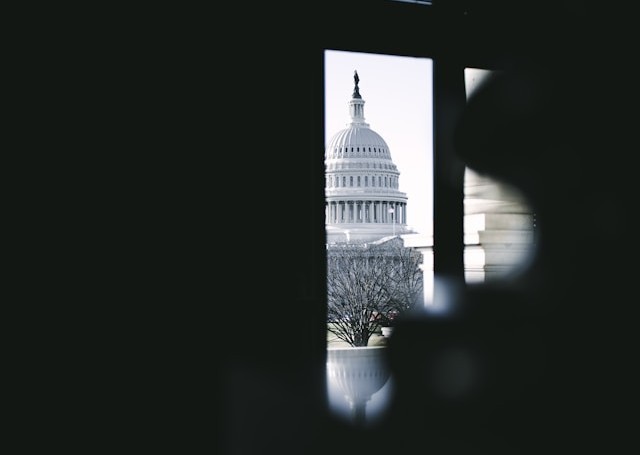When the government shuts down, it doesn’t just close buildings or delay paychecks — it closes the rhythm of people’s lives. For thousands of dedicated public servants, the shutdown is not simply an “administrative pause.” It’s an emotional earthquake that rattles confidence, stability, and identity.
Behind every furlough notice is a person — a teacher of democracy, a protector of parks, a scientist, an analyst, a mail carrier, a counselor — someone who wakes up each morning with a purpose to serve. When that purpose is interrupted, so is the heartbeat of their daily life.
The Hidden Cost of Uncertainty
The most difficult part of a government shutdown is not the waiting — it’s the not knowing.
Not knowing when the next paycheck will come.
Not knowing if benefits will continue.
Not knowing how long to stretch the savings that were never meant to last this long.
That uncertainty seeps into everything — grocery store trips, bill payments, even conversations at the dinner table. It can lead to sleepless nights, anxiety, and feelings of helplessness. For parents, it means trying to hold it together for their children while privately worrying about gas money or the mortgage. For couples, it can create tension, as financial stress amplifies old wounds and fears.
And for many, the deeper pain is identity loss. Government work isn’t just a job — it’s a calling. It’s service, structure, and a source of pride. When that calling is placed on hold, people often ask, “Who am I without my work?”
Emotional Layers of a Shutdown
The emotional impact of a government shutdown runs deeper than many realize. The first layer is financial stress. Even a short delay in pay can create a domino effect—missed bills, late fees, depleted savings, and growing reliance on credit cards or loans. This financial uncertainty can quickly evolve into anxiety and depression as people struggle to make ends meet and maintain a sense of control over their lives.
Then there’s isolation. Work is often more than a paycheck—it’s a place of belonging, camaraderie, and shared purpose. When that environment is suddenly taken away, the silence can be deafening. For single adults or those living alone, the days can feel long and lonely, intensifying feelings of disconnection.
Another layer is shame and silence. Many federal employees feel embarrassed to admit they’re struggling. They may hide their worries or avoid conversations about money, believing they “should” be okay. This silence creates emotional distance and reinforces the false idea that asking for help is a weakness.
Finally, there’s emotional exhaustion—the result of living on a rollercoaster of uncertainty. Being furloughed, reinstated, and then bracing for another possible shutdown can wear down even the most resilient person. Over time, it can lead to distrust, resentment, and the quiet fatigue of constantly having to be strong.
Care for Yourself During the Shutdown
While you may not control the timeline of a shutdown, you can care for yourself through intentional acts of stability and compassion. Start by grounding in routine. Even when work stops, structure doesn’t have to. Wake up at the same time each day, get dressed, take a walk, or write in a journal. Predictability can offer calm in the middle of chaos.
Next, name the feelings. It’s okay to be angry, scared, or sad. Pretending everything is fine only deepens the stress. When you name your emotions, you take away some of their power—they become something you can work with, not drown in.
Connect instead of isolate. Reach out to friends, coworkers, or support groups. Sharing your experience helps you remember that you are not alone in this. Connection replaces shame with solidarity and reminds you of your resilience.
If the weight feels too heavy, seek support. Many therapists, churches, and community organizations offer sliding-scale or pro bono counseling during shutdowns. You don’t have to suffer in silence or face uncertainty by yourself.
Reclaim your sense of purpose. Service doesn’t have to stop because your job is paused. Volunteer locally, take a class, or spend meaningful time with loved ones. Small acts of giving—helping a neighbor, mentoring a student, or cooking for family—reignite the same sense of contribution that drew you to public service in the first place.
And above all, breathe—literally. Simple breathing, mindfulness, or meditation practices calm your nervous system and bring you back to the present. The shutdown will eventually end, but your emotional well-being needs care right now.
In uncertain times, tending to your emotional health is an act of resilience. You are more than your role or paycheck—you are the heart of the service that keeps this country moving, even when the world feels paused.
From Surviving to Remembering Your Why
A shutdown is temporary, but the human spirit is not. It’s in these seasons of uncertainty that purpose is tested — and often, renewed. Many who’ve endured previous shutdowns speak of finding deeper gratitude, resilience, and perspective afterward.
You are not defined by your pay status or your position number. You are defined by the integrity, compassion, and commitment that led you to serve in the first place. The work may pause, but the why behind your work never does.
So as you wait, breathe, and hope — remember this: you are part of the fabric that holds this country together, even in the silence. You are seen, valued, and not forgotten.
And when the doors reopen, you’ll walk back in — not as someone who barely made it through, but as someone who stood tall in the storm, grounded in purpose and grace.
Get help in hard times: Free Support Group for Government Employees

